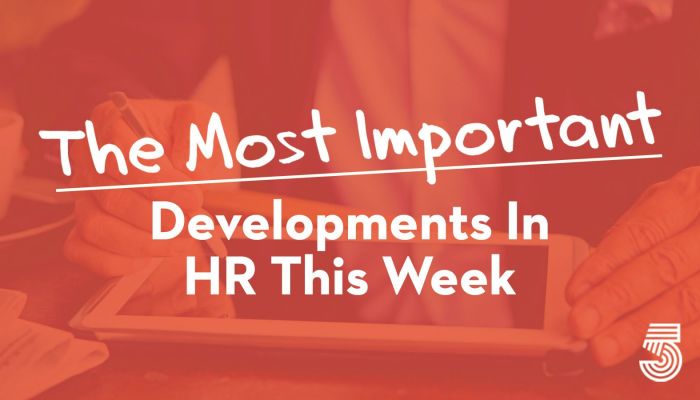The M.I.D., as we call it, is curated by our editorial team from more than 50 news sources. Like a lot of good ideas, this started as something I wanted for myself. If I can’t read everything, I at least want to stay abreast of the most important developments.
This week in HR, we learned hybrid work doesn’t foster in-personal collaboration after all, tactics for hiring in this difficult job market, corporate takeaways from Will Smith’s apology, and why people are acting so weird these days.


More than two years into our national experiment in working from home, one of the most popular arguments for returning to the office is about collaboration: Employees need to be on site, we’re told, because collaborating with one another has been harder to do when everyone is working from separate locations. Hybrid schedules are supposed to provide the best of both worlds: all the benefits of working from home (no commute, more focus, hanging out with the dog, whatever it may be) plus the benefit of in-person collaboration with colleagues. The problem is … much of the time, it isn’t happening that way. Instead, a lot of people who have returned to their offices for some or all of the week have found that they’re the only ones there, or others are staying isolated in their offices, and all communication still happens over email, Slack, or Zoom. As a result, they’re spending time commuting to and from the office and dealing with all the hassles of in-person work but without any of the promised payoff. Slate


Everyone’s looking for a job these days — even people who are gainfully employed. And hiring companies can’t seem to find enough talent to replace those workers who leave. Given this new reality, it’s surprising that hiring companies don’t create more enticing job descriptions. Job ads should be redone so they engage, rather than turn off, prospective employees. Here are seven common mistakes that companies are making when they write job descriptions: They provide too much information, they don’t make the company sound appealing, they fail to convey company culture, they inflate job requirements, they use too many adjectives, they rely on jargon, and they don’t provide a compensation range. Fast Company


Actor Will Smith apologized Monday for slapping comedian Chris Rock in response to his joke about wife Jada Pinkett Smith at Sunday’s Academy Awards ceremony in Hollywood, California. As angry as Smith was with Rock, he could have handled the situation better. When faced with the need to apologize, company executives can learn the following lessons from Smith’s apology that he posted on Instagram. Don’t wait. (Although Smith apologized to the Academy and his fellow nominees when he accepted the Best Actor award last night, he made no mention of Rock.) Be direct. Make it personal when appropriate. Explain what prompted your actions. Be clear. Express embarrassment/remorse/regret. Don’t leave anyone out. Forbes


During the pandemic, disorderly, rude, and unhinged conduct seems to have caught on as much as bread baking and Bridgerton. Bad behavior of all kinds — everything from rudeness and carelessness to physical violence — has increased. Americans are driving more recklessly, crashing their cars and killing pedestrians at higher rates. Early 2021 saw the highest number of “unruly passenger” incidents ever, according to the FAA. Health-care workers say their patients are behaving more violently; at one point, Missouri hospitals planned to outfit nurses with panic buttons. Schools, too, are reporting an uptick in “disruptive behavior,” Chalkbeat reported last fall. In 2020, the U.S. murder rate rose by nearly a third, the biggest increase on record, then rose again in 2021. Car thefts spiked 14 percent last year, and carjackings have surged in various cities. And if there were a national tracker of school-board-meeting hissy fits, it would be heaving with data points right now. What on earth is happening? More than a dozen experts on crime, psychology, and social norms recently walked me through a few possible explanations: We’re all stressed out, people are drinking more, and we’re social beings and isolation is changing us. The Atlantic


Americans are becoming increasingly confident in their ability to land their dream job — and it’s time employers become just as confident in their ability to land their dream employees. The gap between job seekers and the number of open job opportunities has led to a huge labor shortage in the US, meaning that many employers are searching for new ways to land the ideal candidate. But finding the perfect fit is not always as easy as it may seem and oftentimes employers are using the wrong methods to find the right employee. Before the pandemic, companies had a lot of power when it came to choosing employees — selecting the best fit for skills and company culture. But today, the roles have shifted. And employers need to shift their talent acquisition tactics with it. By avoiding these three common mistakes, companies can rapidly secure the best candidates for their positions: Hiring for culture fit (you don’t want a cookie-cutter staff), not giving your company enough credit, only offering pre-pandemic perks. Training Magazine










